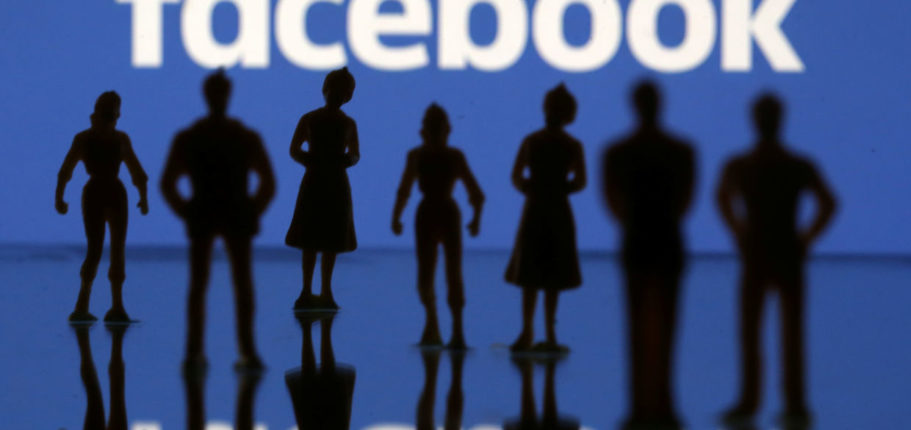L'Autorità Garante della Concorrenza e del Mercato, in data 26 luglio, ha autorizzato con condizioni…
Facebook users care less about privacy than regulators

Facebook Inc is preparing for a record-setting fine from U.S. regulators over privacy issues, but Wall Street shrugged at the looming penalty after the company added users and trounced profit expectations for the first quarter.
It has been just over a year since Facebook’s improper data sharing with political consultancy Cambridge Analytica launched probes on both sides of the Atlantic. That included a U.S. Federal Trade Commission (FTC) investigation into whether Facebook violated a 2011 agreement over user privacy.
Some companies pulled their ads off the social network and users tweeted #DeleteFacebook as they shut down their accounts. And investors knocked nearly $70 billion off Facebook’s market value in less than a month as executives admitted costs of fending off outright regulation would spiral.
But Facebook is now worth $40 billion more than it was right before the scandal erupted. Shares surged 6 percent on Thursday, the day after it disclosed a $3 billion litigation accrual in quarterly earnings that otherwise beat estimates.
“With each fresh scandal, commentators and politicians demand vague action and declare the end is nigh,” said Ben Marder, senior lecturer in marketing at the University of Edinburgh Business School.
“All this just solidifies Facebook as a shining example of ‘whatever doesn’t kill you makes you stronger’. Figures show its users are generally happier now, following alterations to the algorithm to give them more ‘meaningful content’.
Facebook’s namesake app logged an 8 percent rise in users from the first quarter last year. The company raised its 2019 expense forecast, but the financial penalty itself prompted few concerns.
There were some worries from analysts about changes the FTC could potentially force as part of a settlement, however, and how new requirements might hurt ad targeting and revenue.
Facebook founder and Chief Executive Mark Zuckerberg in March said he was open to government oversight of social media, and in a blog post said Facebook’s future is in private messaging. The company is also working on a WhatsApp-based payments system.
Analysts appear to buy into Facebook’s vision, though it has not articulated how it will adapt its ad model. In the meantime, they said advertisers will still be drawn by its massive user base.
“While marketers may say privately that they do worry about Facebook’s problems with fake news, election meddling, privacy and more, they worry more about their own financial health, and Facebook is still a major partner in that regard,” eMarketer analyst Debra Aho Williamson said.
Facebook is also a global and diversified company. Its U.S. users have held relatively steady in recent quarters, but overseas markets fuel growth.
The company has said its Instagram app now has more than a billion users, versus Facebook’s 2.38 billion. There are also an estimated billion people on Whatsapp and Facebook Messenger.
One analyst characterized Facebook as a Swiss army knife with ad products that can now meet almost any advertising need. Industry estimates show only 25 percent to 30 percent of global advertising has migrated online
“Along with Google, we expect Facebook to be a primary beneficiary of the about $600 billion global advertising industry’s secular shift from offline to online,” Baird Equity analysts said.
FTC REMEDIES?
Of course, regulatory risks remain and more bad headlines could turn off users, analysts said. Facebook has also grappled with scrutiny over how the platform was being used to promote extremism and spread misinformation.
There are also worries revenue from targeted ads could slow.
A settlement with the FTC could include remedies for the company that force it to change its business practices, privacy experts said. The FTC might require Facebook to collect less of the user data that it needs to target advertisements, for example.
David Vladeck, director of the FTC’s Bureau of Consumer Protection at the time of the 2011 consent agreement, said Facebook should be required to make sure its users agree to any data collection by third parties.
Having less data could knock two percent off overall revenue since Facebook would know less about its users and advertisers would pay less, Gene Munster of Loup Ventures estimated. Facebook had $55.8 billion in revenue last year
The company has set aside $3 billion to cover a settlement with U.S. regulators and warned that could rise to $5 billion. That would be largest civil penalty ever paid to the FTC.
Facebook generated more than $5 billion in free cash in the quarter and ended with $45 billion in cash. Revenue in the first quarter rose around to $15.1 billion, growing by roughly the size of the accrual.
Fonte: Reuters
Crediti foto: Dado Ruvic/Reuters








